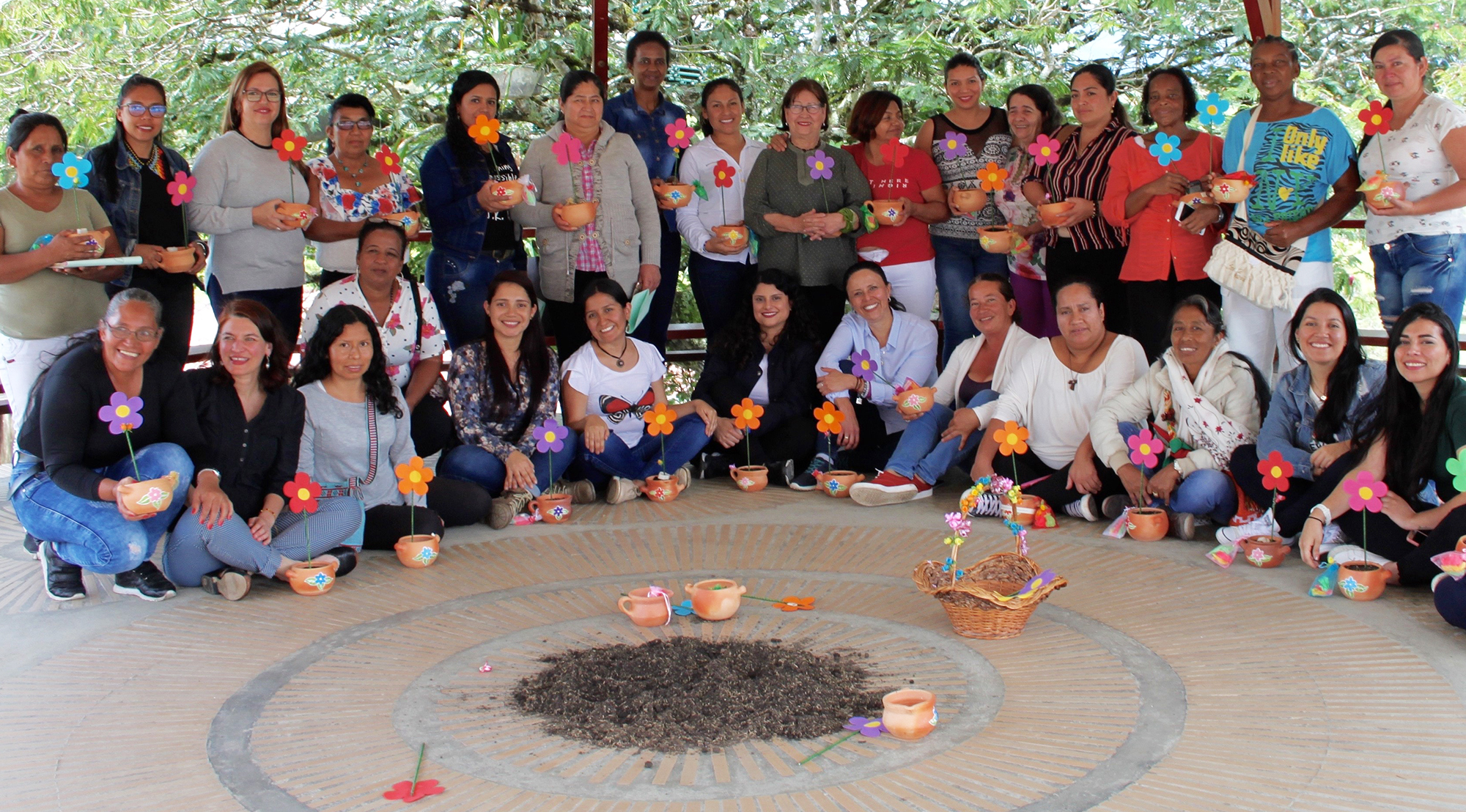The women walk through the dense forest. Stopping at a tree they read the yellow note attached to it. It says, “I have understood that I can’t stay with this pain; I want to learn to forgive.”
One woman says she wanted to commit suicide, the pain of her experiences during the conflict in Colombia had become intolerable. But then she decided: “I can’t do the perpetrators the favour of not living anymore, after what has been done to me.” The women continue walking. At the start of the forest path a board called on the women: “Let us move together towards the truth.”
The 20 women participated in a Peace Table that took place in May in Popayan, in southern Colombia. It was the first of four regional Peace Tables organised this year by COMUNITAR, PeaceWomen Across the Globe’s partner organisation. It forms part of PWAG’s worldwide Peace Table programme.
The Colombian “Commission for the Clarification of the Truth, Coexistence and Non-Repetition” is cooperating in these Peace Tables to ensure that women become part of the peace process and that their experiences are not forgotten. PWAG provides essential support, particularly important as the Colombian state, which finances the Commission’s work, has cut its budget by 40 percent.
In Popayan, Alejandra Miller Restrepo, a member of the PWAG board and of the Truth Commission, talked about the state of the peace process and explained the Commission’s goals. One of its aims is to include women’s testimonies in the truth-finding process and in the building of the historical record of the armed conflict. Her focus and that of the Commission is both on the women’s pain and suffering and on their stories of resistance, “what you did to survive,” she told the women. Including both aspects ensures that the women are regarded not only as victims, but also as women with agency.
Five members of local truth commissions recorded the women’s statements during the Peace Table. They know that the statements will remain anonymous, but often find it difficult to talk about their experiences. Spending time with women who listen and share similar experiences makes it easier for them to open up. At home, they repress the memories. “We do not dare to cry because we don’t want to burden the family,” said one of the women. Another expressed what many thought: “This is a place where we can give free rein to our feelings – to grief and to the joy that we are not alone.” After two days, 14 out of the 20 women had told their stories to the Truth Commission staff.
The experiences from the regional Peace Tables will be exchanged at the national Peace Table, to be held in Medellín towards the end of 2019. All the women who attended the regional Peace Tables will be invited to participate to ensure accountability and to strengthen the women’s resources and networks.
A central component of the Peace Tables is the women’s psycho-social support. The forest walk brings the women, many of whom were driven from their land during the conflict, into nature and re-awakens memories. At the conclusion of the Peace Table, each woman received a pot of earth, seeds and a paper flower with motivational sayings. They have learned that they can talk about the atrocities they have experienced, that they can forgive without forgetting. The process of dealing with the past, in which the Truth Commission’s report will play an important role, will ultimately ensure this.


